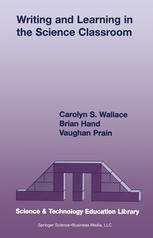

Most ebook files are in PDF format, so you can easily read them using various software such as Foxit Reader or directly on the Google Chrome browser.
Some ebook files are released by publishers in other formats such as .awz, .mobi, .epub, .fb2, etc. You may need to install specific software to read these formats on mobile/PC, such as Calibre.
Please read the tutorial at this link: https://ebookbell.com/faq
We offer FREE conversion to the popular formats you request; however, this may take some time. Therefore, right after payment, please email us, and we will try to provide the service as quickly as possible.
For some exceptional file formats or broken links (if any), please refrain from opening any disputes. Instead, email us first, and we will try to assist within a maximum of 6 hours.
EbookBell Team

0.0
0 reviewsThis volume is of interest to science educators, graduate students, and classroom teachers. The book will also be an important addition to any scholarly library focusing on science education, science literacy, and writing.
This book is unique in that it synthesizes the research of the three leading researchers in the field of writing to learn science: Carolyn S. Wallace, Brian Hand, and Vaughan Prain. It includes a comprehensive review of salient literature in the field, detailed reports of the authors' own research studies, and current and future issues on writing in science.
The book is the first to definitely answer the question, "Does writing improve science learning?". Further, it provides evidence for some of the mechanisms through which learning occurs. It combines both theory and practice in a unique way. Although primarily a tool for research, classroom teachers will also find many practical suggestions for using writing in the science classroom.